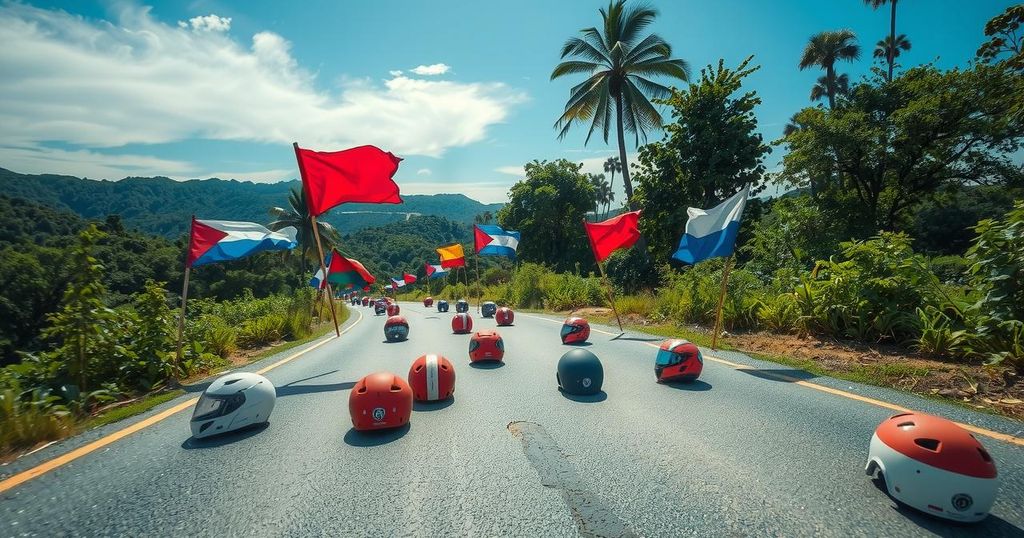Motorcyclists in Monrovia protest government restrictions that have limited their access to main roads, despite having paid for permits that guaranteed such access. The protests stem from a failure to honor commitments made during a bike registration process, leaving these individuals feeling cheated. The police defend the ban as a safety measure, but motorcyclists emphasize their desperate need for road access to support their livelihoods.
Monrovia is witnessing significant protests from hundreds of motorcyclists who rely on their bikes for income, due to a government decision that restricts their access to essential roads. This group has historically played a crucial role in Liberia’s economy, facilitating transport for passengers and goods in a country with limited formal job opportunities. The current unrest stems from unmet promises made during a bike registration process that offered street access upon payment of a $350 fee for necessary licenses and insurance.
The discontent among motorcyclists intensified after recent restrictions imposed by the Liberia National Police following a tragic accident involving a motorcyclist. Enforcement of the ban on motorcycles in several main areas of Monrovia has left many feeling deceived, as they pay for services they cannot utilize. This regulatory move aims to enhance safety and reduce accidents, but it contradicts the expectations of those who have complied with the registration requirements.
Leading voices among the motorcyclists, such as Trokon Reginald Grimes, known as “Yellow Machine,” express frustration over the perceived betrayal by the government. They assert that the government’s actions amount to dishonesty, where collected fees did not translate into promised access to main roads. Grimes stated, “We don’t want to steal, we don’t want to be armed robbers. That’s why we choose to ride bikes.” He further criticized the administration for its financial mismanagement and failure to honor its commitments.
Personal testimonies from riders highlight the dire economic implications of the government’s control. Many express desperation as their livelihoods wither, with some unable to afford school tuition for their children. Consequently, they are protesting not only for financial restitution but also for justice and acknowledgment of their contribution to the economy. “We are contributors to the economy,” stated one rider, reflecting their collective struggle for recognition.
As the protests continue peacefully, motorcyclists demand a refund of fees and restoration of road access, while also calling for the resignation of the Police Inspector General Gregory Coleman, whom they accuse of targeting them unfairly. Grimes has articulated their position, emphasizing that they will persist in their demonstrations every Monday until their conditions are addressed, stating, “We don’t want to steal, we want to survive, and the streets are our only means of survival.”
The government, however, stands firm on the restrictions, with Inspector General Coleman defending the need for safety measures due to the high number of accidents attributed to motorcycles. He remarked, “The country is about 43,000 square miles. We only asked for 15 miles just to have some semblance of safety.” Despite the police’s rationale, motorcyclists feel they are being disproportionately punished for broader systemic issues they did not create.
In summary, the protest of motorcyclists in Monrovia serves as a significant response to government policies that have adversely affected their livelihoods. The motorcyclists demand accountability and restoration of their rights to operate on key roads that are crucial for their survival. Their plight underscores the complex interplay between safety regulations and the economic realities faced by this essential workforce, highlighting the need for a balanced approach that considers both public safety and the welfare of those reliant on motorcycle transport.
Original Source: frontpageafricaonline.com






